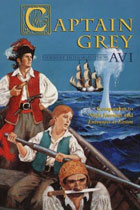 I once heard a lecture about the establishment of the literary canon, those books which become the accepted milestones of literature. The lecturer went on to suggest that the primary way this happens is because these books—whatever the reason—become anchored in school curricula. Good examples of this might be Macbeth or To Kill a Mockingbird. This is not to question such works’ intrinsic literary merit but to think what happens when such singular titles become embedded in schools.
I once heard a lecture about the establishment of the literary canon, those books which become the accepted milestones of literature. The lecturer went on to suggest that the primary way this happens is because these books—whatever the reason—become anchored in school curricula. Good examples of this might be Macbeth or To Kill a Mockingbird. This is not to question such works’ intrinsic literary merit but to think what happens when such singular titles become embedded in schools.
It can happen this way.
Many years ago, when my eldest son (he is in his late forties now) was in fourth grade, I gave a copy of my book Captain Grey to his young teacher. The book, my first work of historical fiction, had just been published. The teacher liked it so much he read it to his class. He told me how much his students enjoyed it.
Twenty years later my son had a reunion at that school and asked me to come along. Lo and behold, the same teacher was still there, still teaching fourth grade. Grayer, balder to be sure, but still enthusiastic. “Avi!” he exclaimed when he saw me. “Remember that book you gave me, Captain Grey? I still read it to my class every year. My kids love it! It’s the one book I use to teach historical fiction.”
There are a number of ways of looking at this. First, delight that he liked the book so much. Delight that his students enjoyed it. That said, in the intervening years I had written some thirty other books and, frankly, some better than that first work of historical fiction. I would be very surprised if this teacher paid any attention to them. He had a book of historical fiction and his students enjoyed it. He was done.
Indeed, sometimes teachers (schools) buy a set of books—a particular title by a particular author. Having that set, there is no felt need to purchases anther set by the same author. They have her/his work, regardless if that writer goes on to create something better, different, more challenging. It can mean that the very success of one book can lead, in this context, to the failure of another book—regardless of merit.
The canon, if you allow me, needs to be reloaded now and again.
3 thoughts on “Reloading the canon”
Thank you for this insightful post! Great to read that you are suggesting reloading the canon now and again. When I was a new classroom teacher, there were some on our grade level team who would pull out the same units, the same books, and the same teaching ideas from year to year. They had their standbys and used what they were familiar with, regardless of whether the units, books, and teaching ideas were still relevant. Those same teachers had a difficult time when newbies would come in and would want to use different materials or would come up with their own units. The best advice I received regarding teaching was to always do both: integrate new, relevant materials, thematic units, and teaching methods with the tried and true. I was hired in 1990, when Whole Language was all the rage. My wise cooperating teacher had suggested to me during my student teaching semester in 89–90 that in lieu of pitching everything related to phonics and phonemic awareness through direct, targeted instruction, to instead think of adding in Whole Language so that the new balances with the tried and true. She said that in her thirty years of teaching, that she saw what amounted to a pendulum with trends in education…so to just pitch everything out and start all from scratch might not be a good choice…but to stick with the old and never introduce newer, more relevant materials was just as imbalanced.
So I took her advice and kept some of what seemed to work from the Phonics camp and then, integrated new, literature based Whole Language.
Think that key innovators in education seem to get that educators should always look to see what can be tweaked and what is still relevant to students.
Walt Disney did that as well in the areas of entertainment and education. He was constantly working on keeping his theme parks relevant and fresh by integrating new attractions into what he had already created and getting rid of what was possibly outdated. When my boys go to Disney, they no longer get to ride 50,000 Leagues Under the Sea At Magic Kingdom like I did in the 70s and 80s, but now, they get to ride Test Track at EPCOT which was not even a possibility as an attraction back a few decades earlier.
Teachers, Library Media Specialists, and parents should do the same with their book collections, both for themselves and for their children.
A thoughtful and very valid comment.
So true.